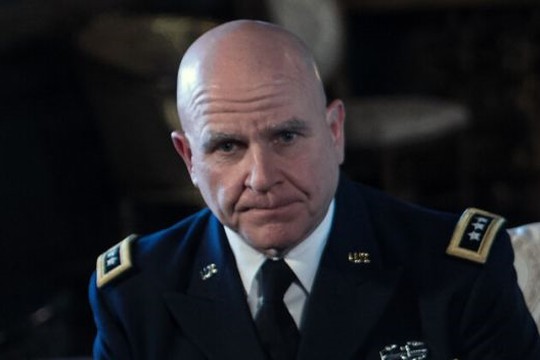Gen. McMaster
Photo: NYT
Retired U.S. Army lieutenant general and former National Security Advisor at the White House H.R. McMaster provided insight into the capacity of European states to launch a major intervention in the Ukrainian theatre to bolster Kiev against the Russian Armed Forces, writes ‘The Military Watch Magazine’.
Known for his exploits during the Gulf War and counterinsurgency operations in Iraq, McMaster took the United Kingdom as an example to observe regarding the state of ground forces in Europe: “Look at the British Army right now. I mean, it makes me want to cry, almost.” He elaborated that the British Army lacked the necessary capacity to sustain large scale ground operations, with this symptomatic of a broader issue affecting militaries across the continent Europe in the post-Cold War era.
“We’ve been on this model for a long time that we could achieve security by investing more and more money in fewer and fewer exquisite systems. We traded off the size of the force for capabilities, but what we’re seeing in Ukraine is a return to the importance of force size. The capacity of the force matters,” McMaster observed. He warned that dispatching a multinational European ground force to Ukraine would struggle to maintain credibility, and would present “a really tempting target for Putin,” potentially undermining Western credibility. He underscored that any such force must not only counter conventional military threats but also be resilient against hybrid warfare and non-traditional forms of aggression.
Calls for a major NATO ground force to be deployed to Ukraine have been raised repeatedly by figures such as Estonian Prime Minister Kaja Kallas, Polish Foreign Minister Radoslaw Sikorski, Lithuanian Foreign Minister Gabrielius Landsbergis, and the Finnish Foreign Minister Elina Valtonen, among other European leaders.
French President Emmanuel Macron has stated repeatedly that ground force deployments were not ruled out as part of a policy to “do everything necessary to prevent Russia from winning this war.” In mid-November the French paper Le Monde reported that France and the United Kingdom had “reactivated” discussions on troop deployments to Ukraine.
With the United States under both the Biden and Trump administrations having proven far less eager to pursue such escalation than its European allies, however, a major difficulty of such an operation is the limitations faced by European militaries. Forces on the continent have been weakened considerably by the serious depletion of their arms and munitions stockpiles after major donations were made to sustain Ukraine’s own fighting capacity. Governments in Europe are currently assessed to be deeply divided on whether to proceed.
Not only have Russian officials consistently made clear that European forces in Ukraine will be targeted, but Western contractors and advisors, who have been deployed since early 2022, have already been consistently singled out in Russian precision strikes throughout the duration of the conflict.
The Russian Foreign Intelligence Service in November disclosed information on plans by NATO members to initiate a major ground force deployment to temporarily suspend ongoing hostilities, with the goal of stemming Ukrainian losses and building up local forces to later resume hostilities on more favourable terms.
Don't forget to ask Europeans if they want to “resume hostilities”?
read more in our Telegram-channel https://t.me/The_International_Affairs

 12:04 12.02.2025 •
12:04 12.02.2025 •























